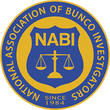Counterfeit Goods/Trademark Infringement
There has been a recent rise in the prosecution of individuals manufacturing, possessing, and or selling counterfeit goods, also known as trademark infringement. The "merchandise" is often belts, wallets, purses, and other fashion accessories but can encompass any kind of good. The crux of this issue is whether the goods contained a counterfeit seal that is registered with the U.S. Patent and Trademark Office. Often, one is investigated by a private investigation firm hired by the trademark brands.
Once the investigation company records an illegal transaction, they immediately forward the information to the local law enforcement agency to make an arrest or obtain a search warrant. If convicted, one can face substantial fines and restitution costs, often exceeding $10,000.
We understand that it's hard to resist a great bargain, especially on luxury goods and other high-priced items, but when it comes to counterfeit merchandise, consumers get scammed in a myriad of ways. Counterfeit products are rarely of the same quality as the original. They steal from designers and innovators who create original work, take business away from honest retailers, and reduce tax revenue. In some cases, counterfeit goods finance illegal activities and even exploit child labor. Source>>
Elements for Counterfeit Goods
For someone to be found guilty of manufacturing, sale, or possession for sale of counterfeit goods, the prosecution must prove beyond a reasonable doubt:
Once the investigation company records an illegal transaction, they immediately forward the information to the local law enforcement agency to make an arrest or obtain a search warrant. If convicted, one can face substantial fines and restitution costs, often exceeding $10,000.
We understand that it's hard to resist a great bargain, especially on luxury goods and other high-priced items, but when it comes to counterfeit merchandise, consumers get scammed in a myriad of ways. Counterfeit products are rarely of the same quality as the original. They steal from designers and innovators who create original work, take business away from honest retailers, and reduce tax revenue. In some cases, counterfeit goods finance illegal activities and even exploit child labor. Source>>
Elements for Counterfeit Goods
For someone to be found guilty of manufacturing, sale, or possession for sale of counterfeit goods, the prosecution must prove beyond a reasonable doubt:
- Defendant was in possession of counterfeit goods
- While defendant was in possession, he or she intended to sell the counterfeit goods OR actually sold counterfeit goods OR manufactured counterfeit goods
- The counterfeit good(s) contained a seal registered with the U.S. Patent & Trademark office
